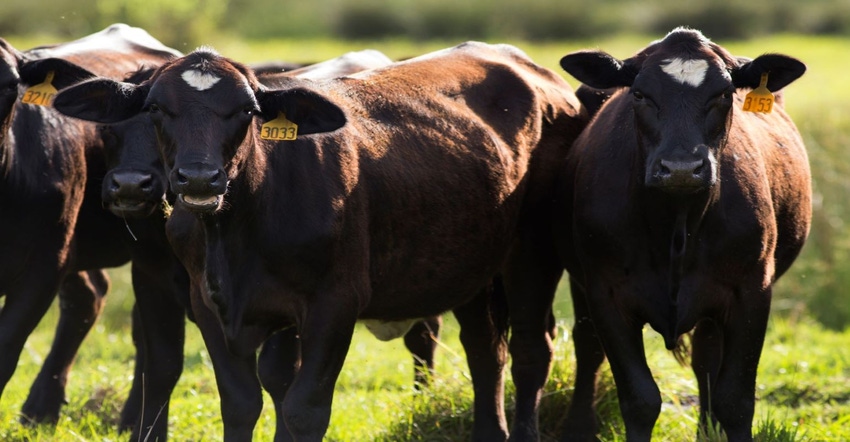Scientist tries to reduce heat stress, improve beef production
Early data from this study suggest that providing access to shade increases the ability of pregnant cattle to stay healthy.
October 19, 2021

Heat stress impairs animal performance and health, leading to annual losses of $1.2 billion for the dairy, beef and swine industries in the United States. That’s why Philipe Moriel and other University of Florida scientists are working to reduce the damage to cattle brought on by Florida’s often-oppressive heat. Heat can reduce beef and dairy production in cattle. It can also impact their ability to reproduce.
Moriel, an associate professor of beef cattle management at the UF Institute of Food and Agricultural Sciences, gave an update on heat-stress research on October 7 at the 80th anniversary celebration of the Range Cattle Research and Education Center. 
“We have a dilemma,” said Moriel, a faculty member at the Range Cattle REC, where they study beef cattle. “Modifications to management during pregnancy sometimes either help or impair long-term performance of their offspring. In dairy cattle, heat stress during pregnancy negatively affects dairy cattle offspring in multiple ways. So far, we do not know if the same happens in beef cattle. So, our studies are unique.”
“This novel information will provide the foundation to develop management practices that will improve the productivity of beef cattle grazing forages in hot and humid conditions,” he said. “These challenging conditions are not seen just in the southeastern United States but in other regions of the world. Therefore, our data will address a fundamental step to meet the rising global demand for beef.”
Moriel and his team started studying the issue in the summer of 2021. They’re examining how pregnant beef cattle react to shade and food additives. “Imagine yourself under the sun during the hottest hours of the day in two scenarios: one without shade and one with shade,” Moriel said. “Imagine how hot it would be without shade. To cope with heat stress, animals will change their behavior. They’ll drink more water, seek shade, decrease feed intake, etc. If that does not work, then you will see changes to their physiology that will partition nutrients away from growth and reproduction to be used to cope with the heat stress. That’s why they don’t perform as well when under heat stress.”
Early data from this study suggest providing access to shade increases the ability of pregnant cattle to maintain their body condition score. The score is an indicator of their energy reserves, and it’s crucial to maintain optimal reproductive performance. Researchers are also evaluating the effects of nutrition on young, pregnant beef cattle during heat stress. They’re looking for impacts on the growth of female cattle and their offspring, including their immune responses.
With nutrition, researchers are using a feed additive containing multiple minerals and vitamins that were previously found to be successful in decreasing body temperatures in cows. In his new research, Moriel wants to eventually identify genetic markers in the blood and in the muscle that could be used to predict how beef cattle will respond to heat stress.
Source: University of Florida, which is solely responsible for the information provided and is wholly owned by the source. Informa Business Media and all its subsidiaries are not responsible for any of the content contained in this information asset.
You May Also Like


.png?width=300&auto=webp&quality=80&disable=upscale)
